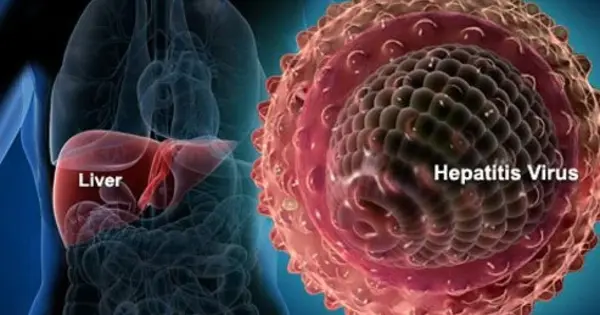Hepatitis E is a liver infection caused by the hepatitis E virus (HEV). HEV is found in an infected person’s stool. It spreads when someone unknowingly consumes the virus, even in trace amounts. People in developing countries are most likely to contract hepatitis E from drinking water contaminated with the virus’s feces.
Every year, over three million people become infected with the hepatitis E virus. There is currently no effective treatment available. An international team of researchers investigated which factors are important for the virus during its replication cycle and how it manages to keep the infection going.
The researchers analyzed various mutations of the virus and found changes that may allow the virus to trick the immune system. The team from the Department for Molecular and Medical Virology at Ruhr-Universität Bochum led by Dr. Toni Luise Meister, Dr. Daniel Todt and Professor Eike Steinmann reports in the journal PNAS.
We found differences in one mutant. while seven of the investigated mutations behaved exactly like the wild-type virus. Viruses with this mutation are incorrectly assembled, are probably smaller than the wild-type virus, and the capsid protein does not accumulate in the cell.
Daniel Todt
Hepatitis C is a viral infection that causes swelling and damage to your liver. Hepatitis C is spread through contact with the blood of a person infected with the virus, most commonly through the use of unsterile injection devices or shared needles. When you contract the hepatitis C virus, your immune system goes into overdrive to fight the infection.
A brief hepatitis C infection may have no long-term impact on your immune system. However, a hepatitis C infection that lasts 6 months or longer can cause your immune system to remain overly activated.
Advantages and disadvantages of mutations
Antibodies are an important defence mechanism against viral infections in our body. They specifically bind mostly to surface proteins of viruses to render it harmless. But, viruses have developed strategies to evade this neutralisation. During an infection with the hepatitis E virus, random mutations often give rise to virus variants that can coexist within an infected person. The antiviral agent Ribavirin, which many chronically infected patients receive, can even increase the formation of such variants.

The research team took a closer look at eight capsid protein variants from samples of chronically infected patients treated with ribavirin in the laboratory. The team wanted to know: Do the genetic changes bring advantages or disadvantaged for the virus? Do they influence the virus’ ability to replicate or its infectivity?
“We found differences in one mutant,” reports Toni Luise Meister, “while seven of the investigated mutations behaved exactly like the wild type virus.” This mutation affects the capsid protein, which is required for viral particle packaging. “Viruses with this mutation are incorrectly assembled, are probably smaller than the wild type virus, and the capsid protein does not accumulate in the cell,” Daniel Todt explains.
These particles are not infectious, but they are correctly recognized and bound by immune system antibodies. “This could work in the virus’s favor. These faulty particles could potentially capture antibodies, reducing the number available to neutralize correctly assembled, infectious virus particles “Eike Steinmann speculates.
Hepatitis E
The main cause of acute viral hepatitis is the hepatitis E virus (HEV). Every year, approximately 70,000 people are killed by the disease. More than 50 years passed after the first documented epidemic outbreak in 1955 to 1956 before researchers took a closer look at the issue. Acute infections usually heal on their own in people who have a healthy immune system. HEV can become chronic in patients with compromised or suppressed immune systems, such as organ transplant recipients or HIV patients. Pregnant women are especially vulnerable to HEV.
Although most HEV infections are asymptomatic, some can be severe, resulting in fulminant hepatitis and extra-hepatic manifestations such as neurological and kidney damage. Chronic HEV infections can occur in immunocompromised patients as well.
















